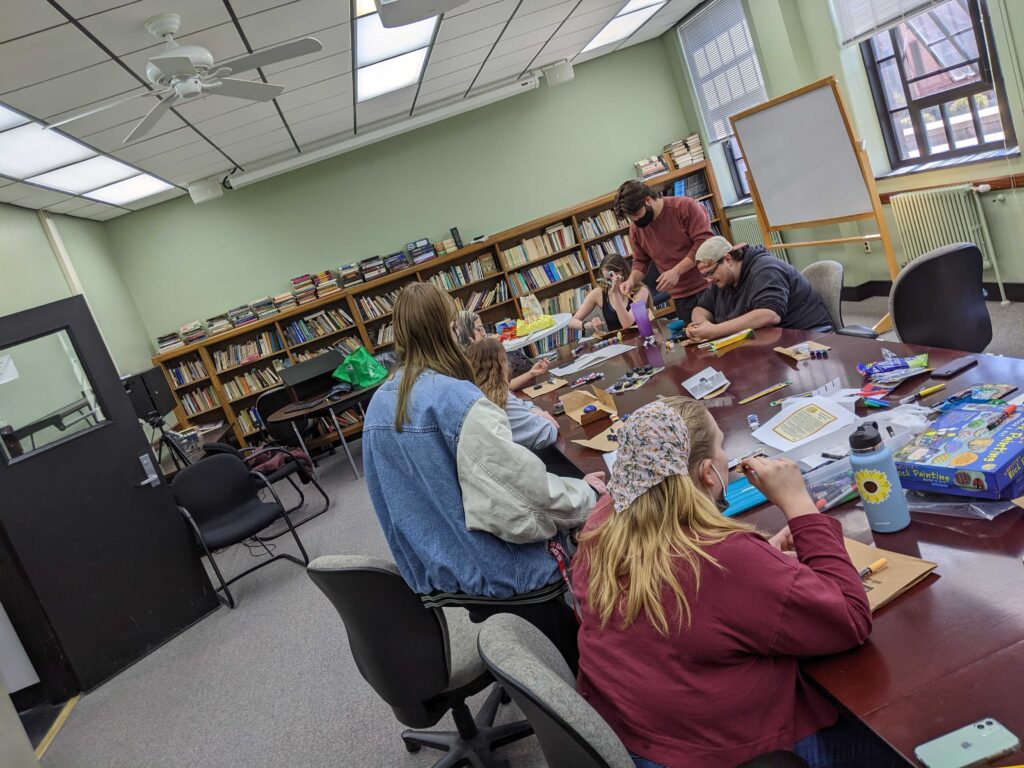
LYDIA TURCIOS
Art Director
haunt·ing
/ˈhôn(t)iNG/
adjective
poignant and evocative; difficult to ignore or forget.
The English Department’s Senior Seminar class will be presenting, under the guidance of their Professor Dr. Jeanette Mcvicker, an exhibition of academic research based on hauntology in literature titled “The Weight of History: How we are Haunted by the Past.”
The goal of this project is to share amongst the campus community a sense of loss that haunts us as a collective for one reason or another. The classes focal point this semester has been how to connect literature to hauntology. As the source word may imply, hauntology is, in the manner of a ghost or specter, how elements of the social and cultural past return with a persistence. It is how events and ideas dregs people down for years, whether it be from greater generational traumas or personal traumas.
The display will include a series of academic posters from each of the members of the course, with topics ranging from the lingering effects of various socioeconomic oppression, how to go about using literature to heal and the ramifications of unhealthy cultural mindsets in the U.S.
Speaking of healing, the class is also reaching out to others to contribute to the display by helping them make their spin on kindness rocks. The Kindness Rocks project is a viral trend of painting rocks with inspirational symbols, phrases and colors for the purpose of placing them everywhere and letting them be found or collected. Here, the Senior Seminar class is instead using them to convey their own personal senses of loss, or something they are haunted by.

The rocks as made by the class will be displayed in Reed Library just below the posters with attached blurbs explaining the context of each individual piece. Any contributions will be added without the blurb, with the goal of making a substantial rock pile. All supplies to contribute will be provided by the Senior seminar class and anonymity of the contribution — such as labeling with initials — is up to the provider.
These rocks are meant to act as a sort of outlet, with their creation cultivating a supportive environment among students. After the display is dismantled, the rocks will be scattered through the campus garden. They will act as the haunting remains of this year’s Senior Seminar class after they graduate, and if you make one, they may act as a legacy of yours, too.
The display itself will be viewable from May 5 to May 23, and the main event will be May 10 from 1 to 2:30 p.m. in Reed Library. The seniors will be there to present the body of their work and help facilitate the rock painting portion of the event.
Lydia Turcios, the author of this article, is also enrolled in the ENGL-400 Senior Seminar class with Dr. Jeanette McVicker.
